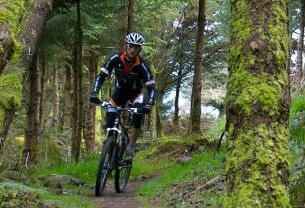The World Health organisation defines health as a “state of complete physical, mental, and social wellbeing, and not merely the absence of disease or infirmity.” While in general health is improving globally there are still challenges. For example, in 2010 mental illness and substance abuse combined were the leading cause of non-fatal illness worldwide and the fifth leading cause of death and disease worldwide. In September 2015 the United Nations recognised mental health and wellbeing as priorities within the global development agenda. The natural environment has been presented as an important aspect of the global health improvement plan. For instance, in 2018 the UK government published their 25 year environment plan which emphasises the importance of being active in nature. The last two decades have been witness to a plethora of research from a vast array of fields, such as public health, ecology, geography, forestry, psychology, education, sport science and psychiatry suggesting that physical activity in the presence of nature and feeling part of nature enhance health and wellbeing.
Traditional theoretical notions typically used to interpret findings are being questioned (Brymer, Davids, & Mallabon, 2014; Karmanov & Hamel, 2008; Keniger, Gaston, Irvine, & Fuller, 2013; Kjellgren & Buhrkall; Yeh et al., 2016). Research is beginning to consider the importance of individual differences, such as feelings of connection to nature, and the person-environment relationship (Freeman, Akhurst, Bannigan & James, 2016; Freeman & Akhurst, 2015). For the most part research undertaken in these fields has focused on traditional activities such as walking and running undertaken in outdoor environments. Outdoor and adventure activities (from forest school to extreme sports and more) are potentially ideal examples of physical activity in nature and perhaps best placed to reconnect people to the natural world.
The term ‘sport’ is often viewed as synonymous with structured competition. However, from an etymological perspective, the English word ‘sport’, derived from old French word ‘desport’, originally refers to a ‘pastime’. For this special edition we adopt the broad definition including the dimensions of self-development and recreation. Specifically, sports are considered to be multi-faceted, boundary-crossing activities, which do not necessarily involve structured competitive activity, regulated performance environments, rules or institutions.
This special edition brings together cutting edge research and thought examining the role of outdoor and adventure activities for enhancing mental health and psychological wellbeing.

